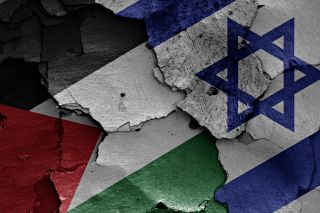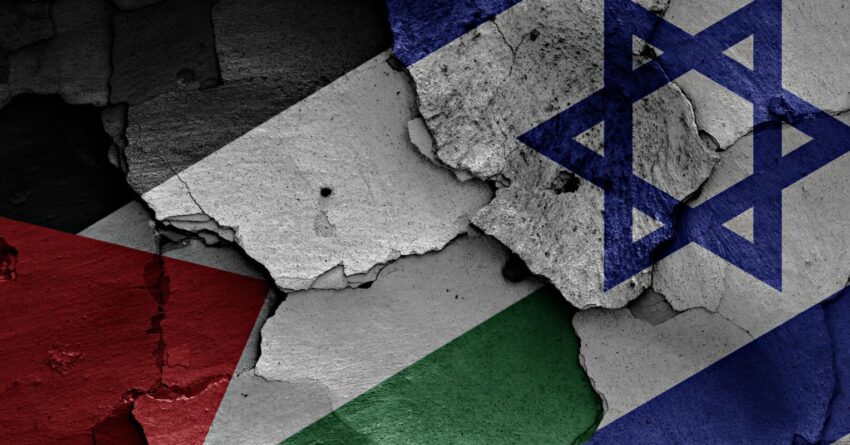
Daniel0 / Adobe Stock
In today’s fast-paced world, where news travels in an instant, conflicts seem to be never-ending and, as we all have our own pressing challenges to deal with, it is all too easy to feel disconnected from the plight of others. However, as we navigate these challenging times, it is vital that we remember the importance of reaching out to those who may be impacted by global events or personal struggles.
The terrible events of recent weeks in Israel and Gaza have attracted much social and mainstream media comment. Among the calls for ceasefire, aid, and understanding has been something else, a plea for support and a sense of isolation.
Many Jewish and Muslim people worldwide have shared how alone they feel, particularly where events in the Middle East have been accompanied by a rise in antisemitism or Islamophobia closer to home. They have been struck by silence from people not of their faith, an absence of people checking in to ask, “Are you OK?”.
Will Kintish may be some 2,500 miles away from the scene of hostilities but, as a Jewish man born in Manchester in the North of England and now living just north of London, and having family in Israel, the fighting impacts him strongly nonetheless. Will shared, “I wake up in the morning and put the news on. Before going to bed at night, you think, what’s happening next? How many more people are going to die? It’s like having a black cloud over you.
“I worry about my family. The day before the war broke out, my niece had a baby in Israel. What sort of a world is that baby being brought into? I’m nervous. I’m nervous for all innocent people on both sides of the conflict.”
It’s an all-consuming fear that doesn’t just affect Jewish people. Sobiya Jawaid, a Muslim woman living in Yorkshire, is facing similar struggles. “Although we’re not physically there, we have mobile phones, we’re more connected than ever before. And to witness what’s happening, and the injustice and the sheer catastrophe on a human level, away from all of the labels has a very difficult emotional bearing on us. I am really struggling emotionally. I’m asking myself, what is my role in this world?”
While Jewish and Muslim people across the world, not to mention relatives of Palestinian Christians, will be feeling the heat of the conflict intensely, for many people of other faiths, or none at all, it can feel much further removed. Many people feel deeply about the humanitarian disaster at the heart of recent events, but for those without a personal connection, it can be just part of the relentless news cycle.
Perhaps, therefore, it is understandable if they don’t reach out. But that lack of concern can have an impact on those who feel unheard. Jawaid explained, “My opinion is that you can’t ignore what’s going on, because whether people speak about it or not, pretending thath nothing is going on is ignoring something significant and brushing it under the carpet. I’m not speaking just about the Muslim community or just the Jewish community, because there are people who are of none of these faiths who are also seeing the catastrophe and the genocide that’s taking place and are actually affected.
“I encourage people at the very least to acknowledge what’s going on. You don’t have to have the answers, you don’t have to belong to either of the communities, you don’t even need to say anything about whose side you’re on, but you’re acknowledging something. And from a human point of view, if someone is struggling, then you’ve got to create those spaces to get that support.”
If you are going to reach out to someone, it’s important that you do so authentically, because you genuinely care about them and want to check in and let them know that you are thinking of them. While welcoming the interest and care, Kintish has no expectation that anybody who is not Jewish would raise the topic.
He confided, “I really don’t think about it, because if I’m talking to my Jewish friends, we will discuss it. Because like Sobiya and her community, the black cloud is there every day. But unless a non-Jew shows any interest, I don’t see any point whatsoever in asking him or her, ‘And what do you think?’ Life’s all about priorities. If they’d rather talk about Manchester United having a bad season than talk about what’s going on in the war in the Middle East, then that’s their choice.
“I’ll think, why haven’t you asked me? But I won’t create the dialogue by mentioning it.”
Jawaid is clear, however, that it is important that leaders, at least, check in on their team members who may be affected by the events in the Middle East. She told us that leaders, particularly those who are driven by values of justice, equality, and empathy, need to acknowledge what’s happening.
“Leaders should know what’s going on with the people working with them”, she says, “whether they are being vocal about it or not. Many people will be afraid to speak up because of the repercussions; leaders need to create spaces where those people can share.”
Whether the people around you might be affected by conflicts on the global stage, such as in the Middle East and Ukraine, or simply by events in their own life, be aware. You don’t need to get into a deep conversation about what is happening, but you can acknowledge the impact events are having on them, show that you care, and ensure that they don’t feel alone and cast adrift.
